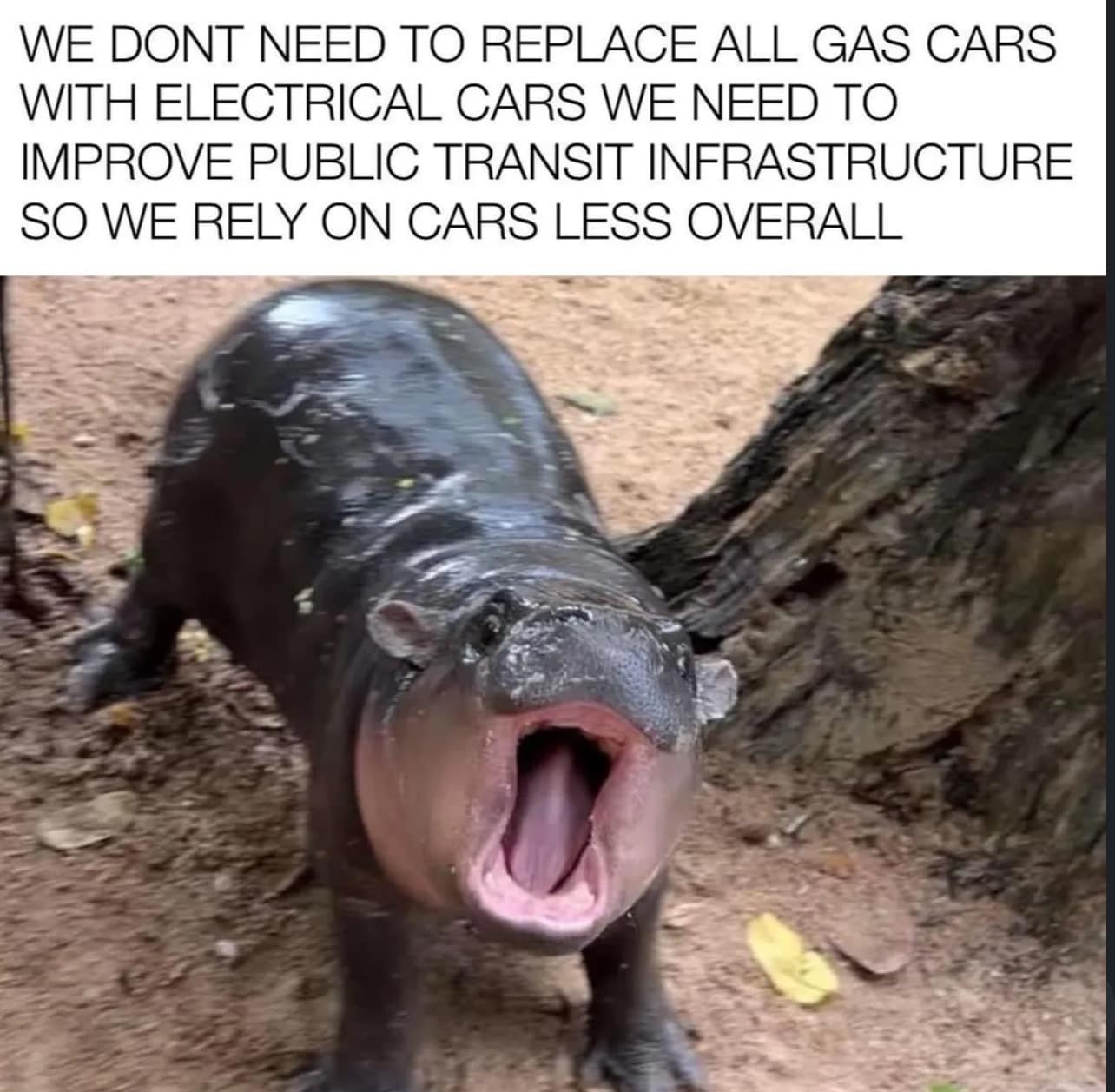Fuck Cars
A place to discuss problems of car centric infrastructure or how it hurts us all. Let's explore the bad world of Cars!
Rules
1. Be Civil
You may not agree on ideas, but please do not be needlessly rude or insulting to other people in this community.
2. No hate speech
Don't discriminate or disparage people on the basis of sex, gender, race, ethnicity, nationality, religion, or sexuality.
3. Don't harass people
Don't follow people you disagree with into multiple threads or into PMs to insult, disparage, or otherwise attack them. And certainly don't doxx any non-public figures.
4. Stay on topic
This community is about cars, their externalities in society, car-dependency, and solutions to these.
5. No reposts
Do not repost content that has already been posted in this community.
Moderator discretion will be used to judge reports with regard to the above rules.
Posting Guidelines
In the absence of a flair system on lemmy yet, let’s try to make it easier to scan through posts by type in here by using tags:
- [meta] for discussions/suggestions about this community itself
- [article] for news articles
- [blog] for any blog-style content
- [video] for video resources
- [academic] for academic studies and sources
- [discussion] for text post questions, rants, and/or discussions
- [meme] for memes
- [image] for any non-meme images
- [misc] for anything that doesn’t fall cleanly into any of the other categories
Recommended communities:
view the rest of the comments

Absolutely both are needed. I struggle to understand how people think a rural area with 5 minute drives between homes could be connected to a public transit network that is timely and not astronomically expensive.
Roads in rural new England are most often publicly funded, and are connected into a network of roads and are for transit, so rural roads are in fact a public transit network. I get that you mean trains and buses, though.
Rural roads are just expensive, period. Putting electric cars on them would additionally shorten their lifespan, so I fail to see how either public transit or electric cars are supposed to help. Plus, rural folks are not major emitters, so it doesn't really make much sense to even try to find meaningful emission savings there.
"On average, cities and large towns produce about four tonnes of CO2 per capita, compared with more than six tonnes elsewhere in the UK"
https://www.centreforcities.org/reader/net-zero-decarbonising-the-city/why-cities-will-need-to-play-a-central-role-in-the-net-zero-agenda/
That is per capita my guy. They emit more per person, but when you've only got 5 families in 10 square miles, getting them to emit less is fuckall in comparison to everyone in a city emitting less.